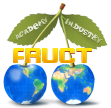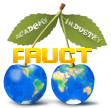Background and motivation
The distinctive feature of modern IT and Telecommunications industries is a dramatic shortening of the period when technology remains commercially viable. On one hand it happens due to competition between the key market players, which is pushing all manufacturers to accelerate innovations; on the other hand, technological progress speed up by the growing expansion of intellectual resource invested into R&D and design activities. This trend is an important call and challenge for the leading educational and research institutions around the globe. At the moment the USA is a clear world leader in adopting university education to the new industrial trends, which makes crucial for EU countries and Russia a need to combine forces in order to follow up the competition.
First, the program is targeted in creating an international group of talented and self-motivated students supervised by academic and industrial experts. The group will be divided to a number of research teams, where each team addresses most interesting and challenging problem related to the advanced information technologies.
As the eventual result of the project are not only particular deliverables like novel algorithms, signal structures, architectural solutions, etc., but what is even more important is creation of the “competence incubation” infrastructure and a set of well-prepared teams capable of continuing challenging research and design work independently. The recommended outcome from each individual project is a publication in most suitable well-recognized journal or conference.
Involvement into the project of students and supervisors from several countries (Finland, Russia, Germany, Sweden, etc.) is considered promising as to the widening scope of topical telecommunication issues concerned with during the training term. At the same time, the role of mutual intellectual enrichment and cultural exchange accompanying active international cooperation can hardly be argued, too.
Participation in the program
University membership
The program assumes two levels of university involvement: full-member and observer. Full-member universities are seen as main contributors to the program content and each member has a right to be presented in the steering committee and must provide at least one expert to the advisory board. Observer members can follow program progress by attending open seminars and having representatives in the advisory board.
Industrial membership
Nokia is the only industrial co-founder and key contributor to the program, which is reflected in the program title. However, industrial participation in the program is not strictly limited by Nokia. The new industrial members can be introduced into the program only after approval by all current industrial members of the program. Each member company has a right to be presented in the steering committee and must provide at least one expert to the advisory board. As a program co-founder Nokia has a priority vote comparing to other industrial members in case of conflict of interests.
Please find list of program members here.
Requirements to each individual project
As a first step the new team should formulate a research proposal, make research plan and submit them to the local coordinator for a first formal review (no content review is performed at this phase). If the proposal meets all formal requirements then local coordinator should forward this proposal to the distribution email list of the advisory board. The local coordinator is responsible for facilitating the related discussion in the advisory board and communicates all wishes and comments back to the team. After processing all comments and identifying project supervisor, the local coordinator submits full project proposal to the steering committee, which finally decides whether to organize a new research team or not.
Clearly, the success of this initiative is the more likely the more potentially attractive is the specific topic of the abovementioned project. In this light among other telecommunication-related problems, the one of outlining philosophy of 4G interface looks both appealing and encouraging project domain.
List of current research projects can be found here.
Benefits for the participants
The FRUCT provides a forum for informal communication between specialists from Russian and Finnish universities and leading telecom companies. Also as it was mentioned before, the main goal of FRUCT program is to be an incubator of new competences and research collaboration, which helps to increase overall competitiveness of the Russian research in general and member universities in particular. By now the program has generated a number of competence niches, which has been transformed into laboratories and/or subcontracting projects with industrial business units.
Another goal of the FRUCT program is to support young Russian scientists in order to help them increasing visibility of their research in the country and worldwide. FRUCT regularly informs and encourage member students to take active part in the different international and regional contests and olympiads. So far the FRUCT students have won a number of Widsets service creation contests, the Symbian Student Essays World Contests in 2008 and 2009 and so on.
The industrial members, i.e. Nokia, Symbian and Nokia Siemens Networks, provide donation funds to FRUCT program, which is used for supporting projects (e.g. by donations of books, mobile devices, computers, professional equipment, granting access to scientific databases and libraries, and so on) and organizing FRUCT events (e.g. half-year program seminars, trainings and topical seminars, etc.). The students involved in FRUCT R&D projects can get assistance from academic and industrial experts from the FRUCT member organizations, which can be provided in forms of feedback, advices and professional evaluation of the projects. On request the FRUCT board can help students to find reviewers and opponents for MSc and PhD theses done within scope of FRUCT projects. Also FRUCT program has special agreements with a number of the world class seminars and conferences, in which the FRUCT members get special discounts and can publish materials under special conditions.
The FRUCT also supports the best students by providing Nokia stipends and travelling grants for attending FRUCT events and presenting papers produced within scope of FRUCT program and accepted in the good conferences. It is important to mention that so far these forms of direct financial support is limited to the Russian participants of the FRUCT program, as the only source of direct funding is Nokia’s University cooperation program in Russia and CIS. Moreover such support is not as critical for Finnish universities as they have well working infrastructure for supporting scientific travelling and publications done by their students.Involvement into the project students and supervisors from several countries (Finland, Russia, Germany, Sweden, etc.) is considered promising for widening knowledge scope in the areas of telecommunication, mobile device-centric research and service engineering. Also the role of mutual intellectual enrichment and cultural exchange accompanying active international cooperation can hardly be argued, too.
The FRUCT program can be also quite important for universities because it assists in the widening and broadening the inter-universities connections, allows to improve the collaboration with the industry and helps to receive additional financing of theirs scientific research projects with the future implementation it into the industry. Participating in FRUCT program also simplifies for the member universities a task of creating teams for large commercial industrial projects. Also the key input to the overall quality of education is provided by the industrial experts, which along with technical disciplines are teaching students the specific aspects of the industrial innovation ecosystem and so improve their level of qualification and readiness for work in the best companies.
Administrative structure of the program
Steering committee is the highest authority, performing the general supervision of the program. The steering committee performs strategic management of the program. Under normal circumstances the committee interfere program projects as little as possible, limiting its function to administrative issues only, e.g. setting program meetings, organizing new research groups and so on. Steering committee consists of representatives full university and industrial members. The full-member organization can execute program steering rights via their official representative in the committee. Each representative has one vote. In addition the steering committee might be temporarily or permanently be extended by other members without vote right, e.g. in some cases it might be useful to invite local coordinators and advisory board members to take part in the steering meetings, so that they could share their vision, but will not have additional vote.
Advisory board is an expert body consisting of representatives from the industrial and economic sectors within the field of Information Technology, the public sector and the universities. The advisory board is responsible for tactical management of the projects executed within program’s scope. The main purpose of the advisory board is to produce an expert opinion of the students’ research plans, articles, research topics and proposals and so on. The staff of the advisory board is not constant; an external expert from the industry or academic areas may be enlisted if necessary.
Local coordinator is assigned by each full-member university participant of the program. The coordinator is responsible for monitoring progress of all projects run by the university, audit stick to the original project scope and when needed communicate team-originated change requests of the project scope to the advisory board and steering committee. The coordinator takes care of presenting new teams and their proposals to the advisory board and steering committee. Also he/she is responsible for collecting, reviewing, combining and optimizing financial support requests from the local teams and communicating this information to the steering committee.
Project supervisor is an official head of each project executed within program’s scope. Each research team has high degree of freedom, limited only by the definition of the project scope and project execution timelines originally accepted by the steering committee. Within the team, scientific leadership belongs to the group supervisors, who have the last word in making research choice (as long as it fits into the original project scope).
When a student want to join a team, he or she should contact the project supervisor and discuss all practical matters, including role in the team, personal research topic and other formalities of participation in the team work.
Any student or a group of students may come up with a proposal for a new research team, which must be submitted following the defined procedure and format. The new team might come up with a new project topic (as long as it meets general quality standards of the program) or it is also possible to ask the advisory board for a topic. In the first case the team must first make justification of relevance and importance of the project and insure support from at least one member of the advisory board, who in this case will come a project supervisor. In the second case the advisory board may propose to the team take one of the topics from the pool open topics generated by the members of the advisory board. In this case the topic originator is expected to become team supervisor or find some other relevant supervisor for the team.






















